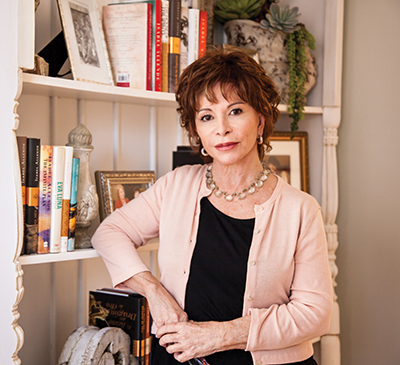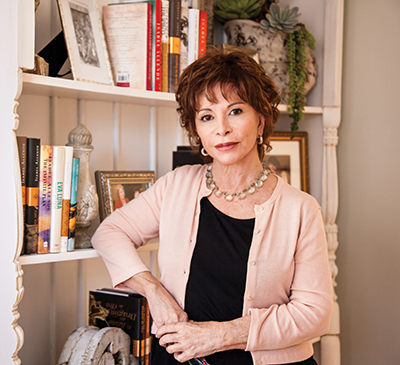
MM: Since this was your first mystery novel, how did you go about tackling it? Was the process different than that of your other books?
IA: The process was not very different from that of my other novels’, except that the research was focused on forensic stuff and the psychology of a serial killer. My challenge was to create suspense, plant clues and red herrings, distract the reader so that he or she would not guess the ending, etc. Creating the characters was easy because I had a lot of help — I was even able to interview (extensively) a Navy SEAL.
MM: What compelled you to venture into the uncharted territory of crime writing?
IA: I was tempted to write a crime novel because it was a big challenge for me. I am always trying new things and taking risks; I seem incapable of relying on tested formulas. All my books are different.
MM: How did Ripper come about?
IA: The book was not my idea. My agent, Carmen Balcells, suggested that I write a book with my husband, William Gordon, who is a crime novelist. We tried but it quickly became obvious that such a project was impossible: Willie writes in English and I write in Spanish; he has an attention span of 11 minutes, I can write for 11 hours; he doesn’t need to research because all his novels are placed in San Francisco in the ’60s and he knows the place and the time very well, while I research every single detail of my books. So Willie went to write his sixth novel alone, while I tried my hand at my first mystery.
MM: You tend to write about families. What is it about that dynamic that speaks to you?
IA: In Latin America extended families are very important — we live in clans. As a political refugee in Venezuela in the ’70s and ’80s, and later as an immigrant in the United States, I lost my extended family, so I suppose I compensate by writing about families in my books. It is an exercise in nostalgia.
Local Page Turners
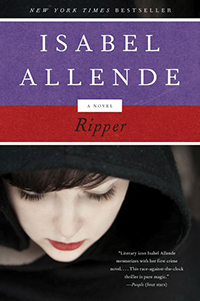
Ripper by Isabel Allende of San Rafael, Harper Perennial, $15.99. After a string of murders in San Francisco, high school senior Amanda takes her fascination with the online mystery game Ripper into the real world, making crucial breakthroughs even before the police. Amanda’s exhilaration turns to panic when her mother goes missing, raising the emotional stakes in this convoluted case.
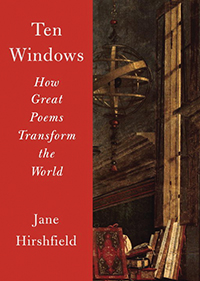
Ten Windows: How Great Poems Transform the World by Jane Hirshfield of Mill Valley, Knopf Publishing Group, $24.95. In this collection of 10 eye-opening essays, the award-winning poet shines light on the art of poetry. Examining pieces by some of poetry’s most notable figures, Hirshfield reveals the mechanisms that infuse poems with their profound power. Appearing at Book Passage Corte Madera March 17, 7 p.m.
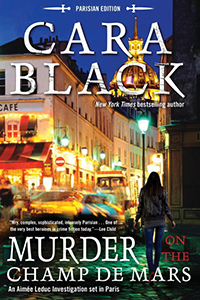
Murder on the Champ de Mars (An Aimée Leduc Investigation) by Cara Black of San Francisco, Soho Crime, $27.95. As a single mother with a newborn, detective Aimée Leduc has time to investigate only one mystery: parenting. Nonetheless, when a young boy claims that his dying mother has a secret connected to the unsolved murder of Aimée’s father, she’s instantly hooked, launching into a frantic expedition to find the ailing woman before it is too late. Appearing at Book Passage Corte Madera March 11, 7 p.m.
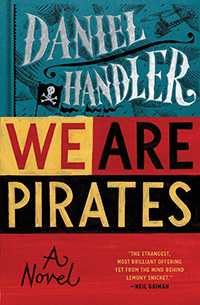
We Are Pirates by Daniel Handler of San Francisco, Bloomsbury, $26. Phil experiences disappointment when his concept for a new radio show doesn’t garner the enthusiasm he imagined. Meanwhile, Phil’s daughter, Gwen, forges a friendship with an eccentric old man. Handler masterfully juxtaposes freedom with constraint, young with old and humor with gravity. Appearing at Book Passage Corte Madera with Michelle Tea March 7, 4 p.m.
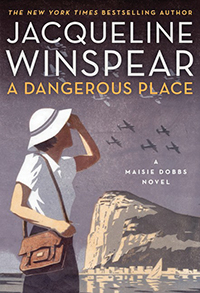
A Dangerous Place: A Maisie Dobbs Novel by Jacqueline Winspear of San Anselmo, Harper, $26.99. It is spring of 1937, and psychologist/ investigator Maisie Dobbs is scheduled to return to England to visit her ailing father. On the boat home, Maisie has second thoughts, and she makes a bold decision to disembark at a British garrison town in Gibraltar — a safe haven for many refugees escaping the Spanish Civil War. When a local Sephardic Jew is murdered, Maisie dives into an investigation that transforms her detour into a perilous journey. Appearing at Book Passage Corte Madera March 20, 7 p.m.
Book picks by Book Passage’s Kathryn Petrocelli
This article originally appeared in Marin Magazine’s print edition under the headline: “Author Talk.”

